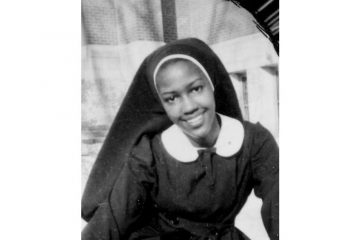Sunday Scripture: a list worth remembering
By Father Timothy P. Schehr
Twenty-Second Sunday in Ordinary Time: Deuteronomy 4:1-8; James 1:17-27; Mark 7:1-23
Influenza, Ebola, Hepatitis — a list like this can get people looking for the nearest pharmacy. Wall-mounted sanitizing stations are still quite common three years after the outbreak of the swine-flu. But how about this list — greed, malice, deceit, envy, folly? Would this list send people rushing around to seek prevention? Sometimes we can be more lax about spiritual ills that physical ones. The readings for this Sunday may help us be a little more on guard about things that could put our spiritual health at risk.
Let’s begin with the Gospel. Experts in the law are terribly offended by the Lord’s disciples. These experts observed the disciples eating without washing hands. Mark seems to have a little fun informing us about their careful attention to the cleansing of cups, jugs, and kettles. Of course, there is nothing wrong with being careful about cleanliness. But the Lord seizes the moment to make His listeners aware of more important matters.
The Lord would rather have everyone just as attentive to spiritual cleanliness. It is not, He tells them, what goes into a person that makes him or her unclean; it is what comes from within that people ought to be careful about. The Gospel reading ends with a long list of evils. The Lord offers such a detailed listing to get our attention. They are things we need to avoid to stay healthy inside and thus remain more worthy candidates for the kingdom of heaven. The list is more than twice as long as the one in the first paragraph of this article. Hearing it ought to get all us of looking around for the nearest cure.
Folly is the last evil mentioned in the Lord’s list. This seems to be a rather low key ending to lists of evils. But in the biblical view of things folly is the opposite of wisdom. In the Book of Proverbs for example, the way of folly leads to death while the way of wisdom leads to life. As the opposite of wisdom, folly actually can be fatal to a person’s spiritual life. That is nothing to take lightly and it makes folly a very fitting wrap-up to a list of evils that can make someone unfit for the kingdom of heaven.
Moses understood how crucial it was to remain wise in the things of God. He also had experienced first-hand the consequences of foolishly ignoring the ways of God. Moses witnessed the passing of an entire generation of Israelites, a generation that chose to ignore the ways of God. In the first reading for this Sunday, Moses is determined to avoid the loss of any more generations. So he gives the people important lessons to keep them focused on the right things, the things that will get them to the Promised Land.
It is a big moment for the people of Israel. They stand on the very border of the Promised Land. But before they dare cross, Moses wants them to understand how faithful they must be to the command of the Lord. Moses hopes they will prove to be a model of faith for all the others nations. He would like to hear all those other nations marvel at the wisdom and intelligence of the people of Israel.
The second reading comes from the Letter of James. Tradition connects this letter to the brother of the Lord and leader of the Jerusalem church. James reminds his readers how fortunate they are to have the word of truth as a gift from heaven above. It has the power to make them wise. So why not welcome the word God planted in their souls? But James also wants them to understand that it is not enough to receive the word. He wants them to act on it. As he puts it: “Be doers of the word and not hearers only…” He even offers some practical examples for the kind of doing he has in mind. They include caring for the least fortunate and remaining detached from worldly interests that distract from the things of heaven. Now that is a list worth remembering!
Father Schehr is a faculty member at the Athenaeum of Ohio













